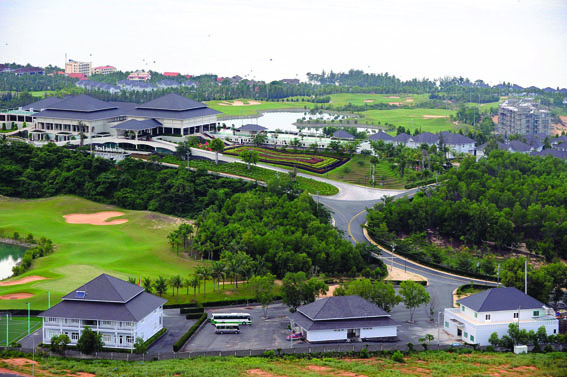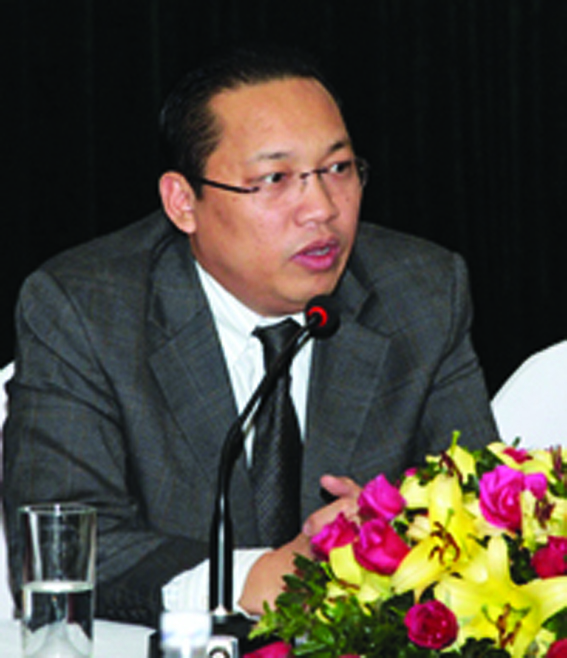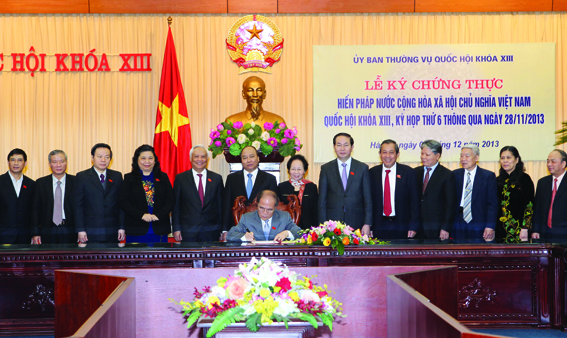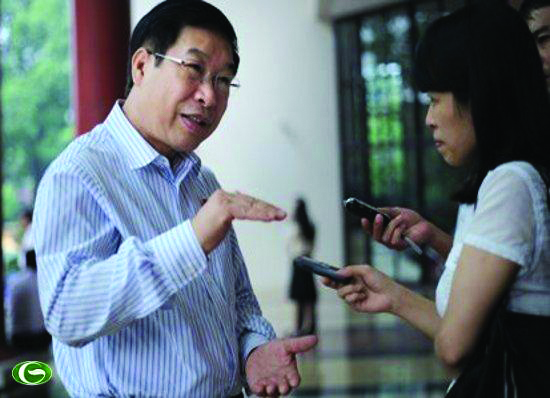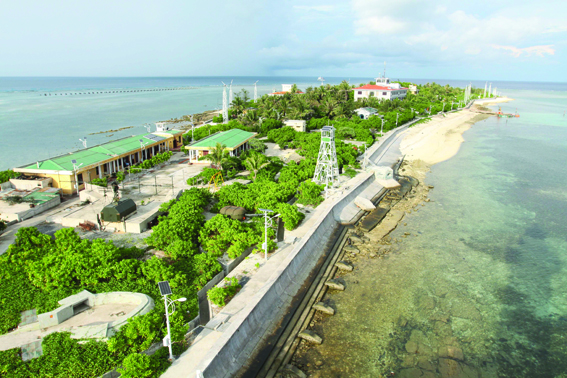Le Thanh Khuyen
Deputy Director General
General Department of Land Administration

Passed on November 29, 2013, by the XIIIth National Assembly, the revised Land Law (the Law) introduces important changes in land policies aiming to meet the country’s socio-economic development requirements in the period of accelerating the national industrialization and modernization, developing the socialist-oriented market economy and deepening the international integration. The Land Law revision has been carried out thoroughly and seriously based on the review of the 2003 Land Law implementation; full institutionalization of the viewpoints on and orientation of land policy and legislation improvement set out in Resolution No 19-NQ/TW of the Party Central Committee (11th tenure) and the 2013 Constitution; and study of relevant international experience, and has demonstrated the desires and expectations of almost all social classes. The Law introduces many important changes, focusing on the further improvement of legal, planning, economic and administrative instruments and the monitoring, supervision and evaluation mechanisms in line with the socialist-oriented market economy institutions in order to make the best use of the land resources for the national socio-economic development and to create a modern, transparent and effective land administration system.
Firstly, the Law once again confirms that the land belongs to the entire people with the State acting as the representative of the land ownership and uniformly managing the land. It specifically regulates the rights and obligations of the State as well as the State’s guarantees for land users.
Secondly, the regulations for the strict management and efficient use of the special national resource - an important resource for national development - are improved through the supplementation and improvement of the regulations on land investigation and assessment, land use master plans and plans, land allocation, land lease and land finance. Financial penalties are imposed to projects that are allocated or leased land by the State but fail to use, or delay the use of, such land.
For the objectives of accelerating the agricultural and rural industrialization and modernization and ensuring food security and sustainable development, the Law extends the allocation term for agricultural land of all categories within prescribed quotas to households and individuals from 20 years to 50 years. Households and individuals are allowed to accumulate larger land areas (not exceeding 10 times the agricultural land allocation quota); and are encouraged to accumulate the land to facilitate the scientific and technological application, mechanization and commodity production development.
The land policies for industrialization, modernization, urban development and national defense and security purposes are further considered important through the supplementation of a new principle of prioritizing the land use for national defense and security purposes and for the sake of national and public interests in land use planning. The regulations on the land use regimes in hi-tech zones and economic zones are improved; the regulations on land use, land allocation and land lease for construction of underground facilities are supplemented.
The mechanism to tap the resources from land continues to be improved through the supplementation of regulations on improvement and strengthening of the capacity of organizations with land fund development functions, and a mechanism for raising capital to create “clean” land funds over which land use rights will be put up for auction. The Law places a focus on the planning and use of land areas next to infrastructure facilities, especially urban transportation facilities, in order to exploit the resources from land.
Thirdly, the operation of land relationships according to the socialist-oriented market mechanism is strengthened; the subsidies in land management and use are abolished; the “ask-give” situation in land use is limited through the introduction of regulations narrowing the cases in which the State allocates land with or without land use levy and mainly applying the form of land lease instead. The Law prescribes the market principles for the determination of land prices. Land price brackets and tables will be developed once every five years and adjusted in case of market fluctuations. The cases in which specific land prices must be determined are also prescribed in the revised Land Law.
Fourthly, a greater equality in land access between domestic and foreign investors is established to meet the requirement of integration and conform with Vietnam’s international commitments.
Under the Law, land allocation with land use levy is applicable to both domestic and foreign investors for implementation of investment projects to build houses for sale or for a combination of sale and lease; land lease with annual rental payment or one-off rental payment for the entire lease term applies to the remaining cases. Foreign-invested enterprises and overseas Vietnamese are allowed to receive the transfer of investment capital being the value of land use rights. Overseas Vietnamese who are eligible to own houses in Vietnam under the housing law are entitled to receive the transfer of residential land use rights through purchase, lease-purchase, inheritance or donation of houses associated with residential land use rights under law.
Fifthly, the publicity, transparency and democracy in land management and use are strengthened, which contribute to the prevention and combat of negative practices, corruption and waste in the land sector.
The Law specifies the cases subject to land recovery by the State; accordingly, the cases in which land may be recovered by the State for socio-economic development for the sake of national and public interests are narrowed. For projects using land which is not subject to recovery by the State and is in accordance with land use planning, domestic investors are entitled to receive the transfer of land use rights or capital contribution in the form of land use rights, and to lease land use rights for implementing investment projects. Land allocation is to be mainly conducted through auction of land use rights.
The publicity and democracy are strengthened through the regulations on the public participation and the State’s accountability in elaboration of land use master plans and plans; land recovery, compensation, support and resettlement; arrangement for resettlement, training, occupation change and support for job seeking.
The Law creates a legal framework for developing the land information system and land database; and prescribes the right to access to land information with the aim of developing a uniform and multi-purpose land information system from the central to local level.
Land registration is to be conducted in paper and the regulation on online registration is supplemented with the aim to carry out the electronic registration step by step for the purpose of administrative procedure reform and removal of difficulties for the people upon registration.
Sixthly, the compensation, support and resettlement are further improved with a view to ensuring the harmony of interests among the State, land users and investors, through the regulations on the application of specific land prices at the time of land recovery decision for land compensation; and the regulations on eligibility for compensation for land, remaining investment cost in land, and land-attached assets.
The Law pays more attention to ensuring the livelihood of people having land recovered by prescribing various types of support for these people upon land recovery by the State, such as support for life and production stabilization; support for vocational training, occupation change and job creation; and support for resettlement for those who have to relocate upon land recovery.
The Law prescribes the responsibilities in building resettlement areas with complete infrastructure in accordance with construction standards and norms and the customs and practices of each region. It also prescribes the people’s right to participate in preparing and implementing compensation, support and resettlement plans.
Seventhly, the land use rights of vulnerable groups like women, the poor and ethnic minorities are paid more attention through the supplementation of specific regulations on the State’s responsibility for residential land and land for agricultural production for ethnic minorities; regulations on the grant and renewal of certificates of land use rights and ownership of houses and other land-attached assets in case land use rights are common property of husband and wife; regulations on the exemption from and reduction of land use levy or land rental for the poor and ethnic minorities.
Eighthly, the supervisory role of state agencies and the public is strengthened, and the accountability of state agencies is enhanced with the aim of building a transparent and effective land management system.
The Law further strengthens the monitoring, supervision and evaluation by public-elected bodies; the Vietnamese Fatherland Front, its member organizations and the public in land management and use; and raises the role of judicial bodies in settling land-related disputes.
The Law provides the monitoring and evaluation system on land management and use to assess the implementation of the land law, the effectiveness of land management and efficiency of land use, the socio-economic and environmental impacts of land policies and law in each locality and the whole country. The Law also prescribes the liabilities of persons on duty who commit violations of the land law and heads of agencies or organizations who let the violations occur.
With the above important changes, the Land Law is expected to contribute to creating an attractive, public and transparent investment environment to lure investment capital for Vietnam’s socio-economic development.-
